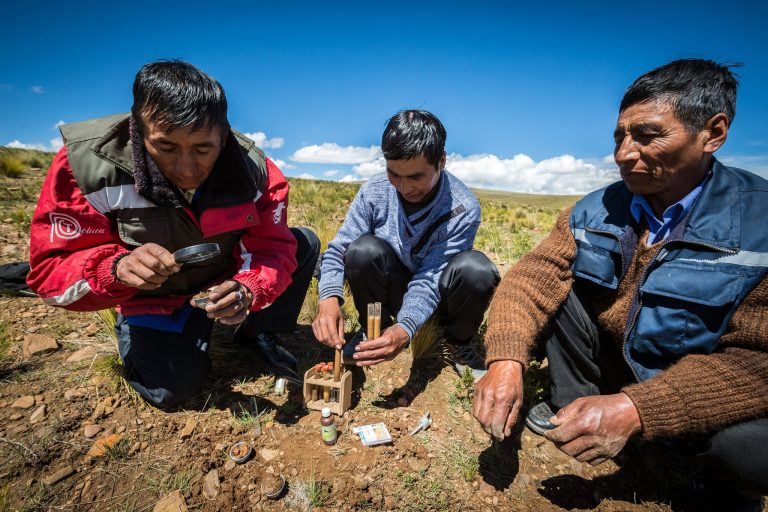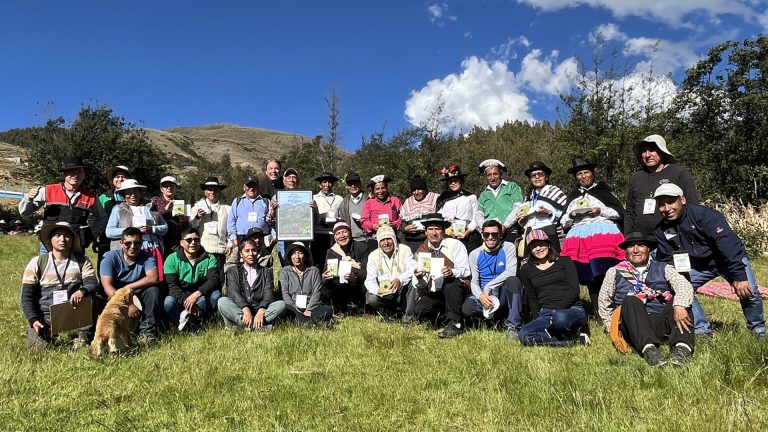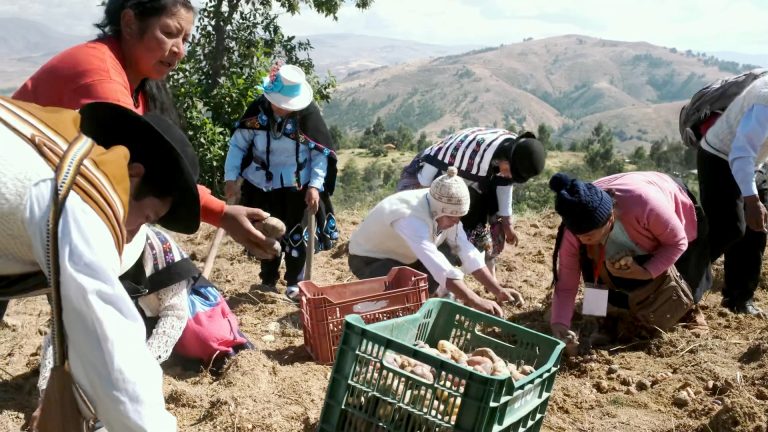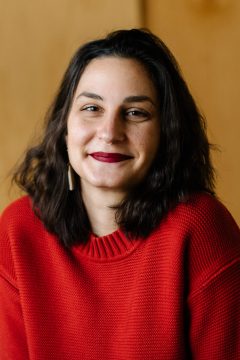Today at the UN General Assembly, McKnight joined with 14 other grantmakers to endorse a USAID Donor Statement on Supporting Locally Led Development. McKnight is enthusiastic about the groundswell of donors coming together around locally-led approaches, which have been core to our farmer-centered sustainable agriculture work for the last 30 years.
“In our decades of practice, we have learned that when local farmers have a say in the health of their food, water, and resources, and share their knowledge, they are a force for global change,” shares Jane Maland Cady, program director for McKnight Foundation’s Global Collaboration for Resilient Food Systems.
Donor Statement on Supporting Locally Led Development
The world’s development, humanitarian, and peacebuilding challenges are vast and complex, with local implications. Equally, there are increasing opportunities to address and overcome these challenges, but success hinges upon enhanced collaboration and cooperation between donors and the people, institutions, and communities who address and are impacted by these challenges every day. In doing so, donors must acknowledge and respect the dignity, agency, priorities, knowledge, rights, and aspirations of those people and communities.
To those ends, we will pursue the following actions to foster locally sustained change that is tied to each country’s unique context. These actions build on previous donor commitments to advance locally led development, humanitarian, and peacebuilding efforts, including those outlined in the Paris Declaration (2005), the Busan Partnership for Effective Development Cooperation (2011), the 2030 Agenda for Sustainable Development (2015), the Grand Bargain (2016), the Grand Bargain 2.0 (2021), the OECD-DAC Recommendation on Enabling Civil Society in Development Co-operation and Humanitarian Assistance (2021), and the Locally Led Adaptation Principles (2021).
- Shift and share power to ensure local actors have ownership over and can meaningfully and equitably engage in development, humanitarian, and peacebuilding programs. Supporting locally led development requires rethinking our roles as donors; understanding and valuing local knowledge, capacity, and expertise; and integrating diverse local perspectives (including those of marginalized and underrepresented groups) into all aspects of the efforts we support. Decisions should be made in partnership with those who will be affected by them. We will work to prioritize and reinforce local leadership and ownership, and reposition ourselves and other international actors as supporters, allies, and catalysts of a more inclusive, locally led, co-created, and sustainable approach to development.
- Work to channel high quality funding as directly as possible to local actors while ensuring mutual accountability for the effective use of funds, management of risks, and achievement of development, humanitarian, and peacebuilding results. This shift will require a longer-term development perspective, more flexible mechanisms, and support for organizational development and capacity strengthening. Implementing this approach will require creativity and innovation to address structural barriers to local actors’ access to funding and alignment with local partners’ goals and capacities. It will also require building trust, simplifying reporting requirements,and reexamining the role of intermediary organizations.
- Publicly advocate for locally led development using our convening authority; our partnerships and networks; enhanced cooperation with national and subnational authorities, community leaders, and civil society; and our voice in international fora and multilateral institutions. This will require intentional and consistent engagement with local actors, including sharing our platforms with local partners rather than speaking for them.
The following donors have endorsed this statement: Australia; Canada; Czechia; Denmark; Estonia; Finland; France; Iceland; Ireland; Japan; the Ministry of Foreign Affairs of the Republic of Korea; the Ministry of Foreign Affairs of the Republic of Lithuania; the Netherlands; Norway; Slovenia; the Spanish Cooperation for Development; Sweden; Switzerland; the United Kingdom’s Foreign, Commonwealth and Development Office; and the United States Agency for International Development.
The following foundations have endorsed this statement: Fundación Avina, Charles Stewart Mott Foundation, Conrad N. Hilton Foundation, David and Lucile Packard Foundation, Draper Richards Kaplan Foundation, Ford Foundation, GHR Foundation, Humanity United, Imaginable Futures, John D. and Catherine T. MacArthur Foundation, McKnight Foundation, The Rockefeller Foundation, Segal Family Foundation, Skoll Foundation, William and Flora Hewlett Foundation.



